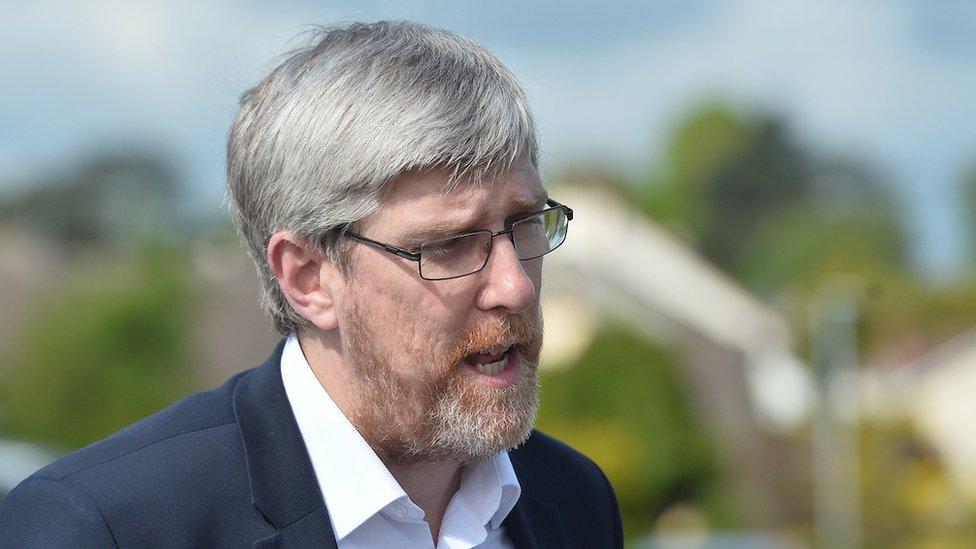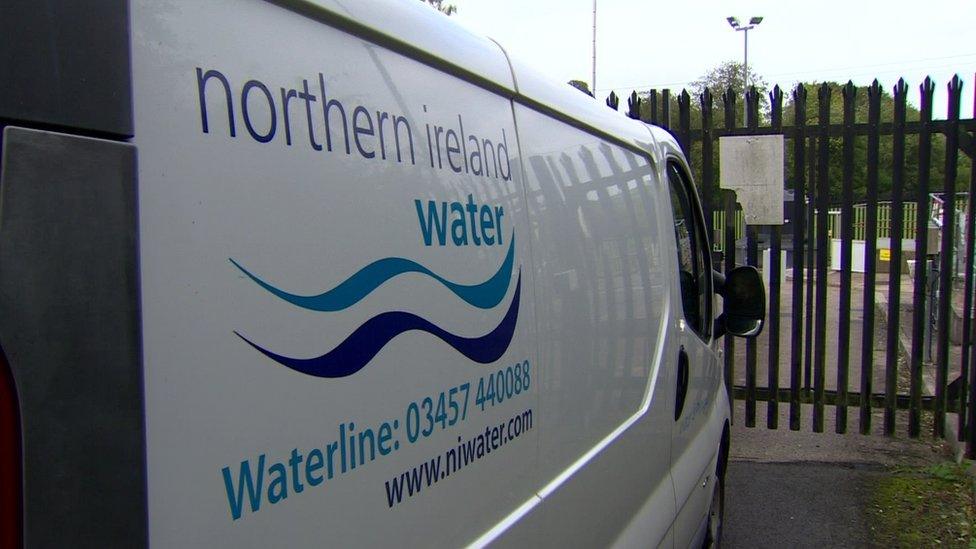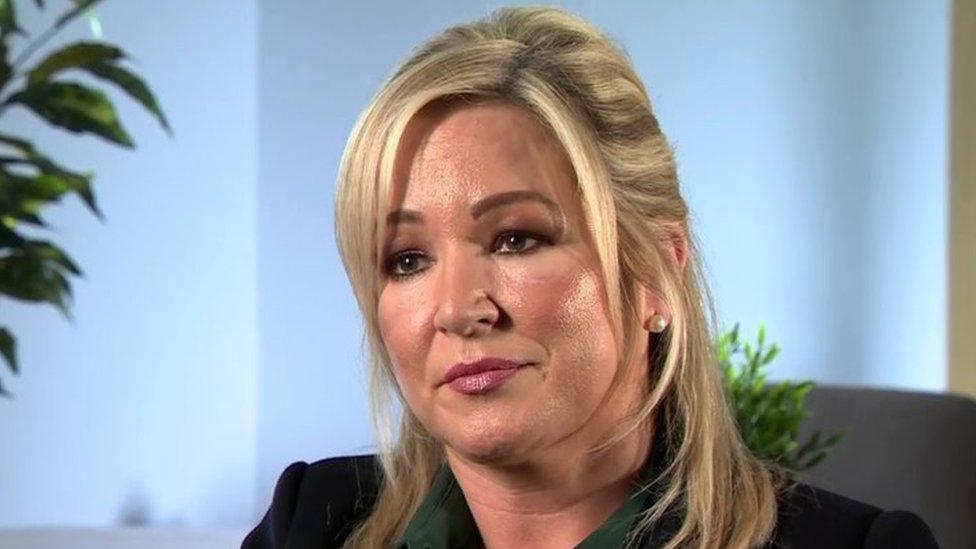Water charges: John O'Dowd rules out NI Water mutualisation
- Published

Infrastructure Minister John O'Dowd says mutualisation would lead to household water bills
Stormont's infrastructure minister has ruled out mutualising NI Water, saying it would inevitably mean household water bills.
Mutualisation would involve converting NI Water from a government company to one owned by its customers.
MLAs have been debating a UUP motion calling for a review of NI Water which could involve mutualisation.
John O'Dowd said while the principle of a mutual company may appear to have merits, it would involve charging.
"Fundamentally a mutual company requires a guaranteed and predictable funding stream which is not subject to direct political control or competing public sector priorities," Mr O'Dowd told the Assembly on Monday.
"Mutualisation leads directly to domestic water charges, there's no other way around it," he added.
"If you want to go down the mutualisation route you end up charging hard-pressed workers and families directly for water."
Welsh Water has a structure similar to a mutual company, with the typical household paying about £500 a year.
'Comprehensive' review of funding needed
Last month, a report from the NI Audit Office (NIAO) said there should be a comprehensive expert review of how NI Water is funded and governed.
It said NI Water has struggled to secure adequate funding for infrastructure upgrades since it was established in 2007.
It added that the investment deficit could "profoundly affect" the ability of the Executive to deliver its economic priorities.

NI Water is government-owned firm that provides water and sewage services in Northern Ireland
The water system in Northern Ireland is largely funded by government resources rather than consumer charges.
Stormont's parties are resistant to introducing the sort of charges applied in other parts of the UK.
The NIAO report found an agreed plan to spend £2.1bn on infrastructure between 2021 and 2027 may not be fully realised.
It said the Department for Infrastructure (DfI) had been able to provide the required level of funding in the first two years of the plan.
However, the department has recently confirmed that NI Water's capital funding allocations in 2023-24 and 2024-25 are "significantly below the level indicated by NI Water as being required to deliver on planned objectives."
The NIAO said this highlights "the inherent ineffectiveness" of current arrangements to support long-term investment plans.
Related topics
- Published22 March 2024

- Published12 February 2024
